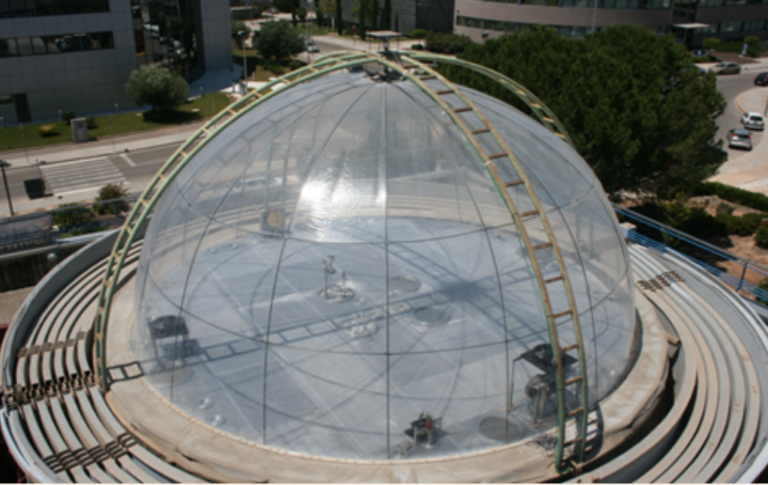Assessing the Impact of Biomass Burning on Air Quality and Health
Published: 18, December, 2024

Biomass burning (BB) is a significant contributor to air pollution, health impacts, and climate. In Europe, the use of residential stoves for heating is one of the primary sources of particulate matter emissions and other harmful compounds. However, the chemical complexity of these emissions and their health impacts remain insufficiently understood and require deeper investigation.
In the ATMO-ACCESS funded transnational access project “MIND-BB” (air quality and health risk Measured IN Domestic Biomass Burning heating devices), researchers from ENEA and U. Milano-Bicocca collaborated to address these challenges at the highly instrumented EUPHORE simulation chamber, an exploratory platform of ACTRIS located in Valencia (Spain). During the campaign, physical and chemical atmospheric processes of biomass combustion emitted by different domestic heating devices, fuelled with different types of wood, were investigated, as well as their evolution under day and night conditions, evaluating its impact on human lung cells directly exposed at the air-liquid interface (ALI).
This multidisciplinary research offers valuable insights into the environmental impacts and health hazards of biomass burning. The findings will enhance emission inventory estimates, deepen understanding of toxicological risks, and help to refine air quality models. Ultimately, these insights will support the development of more effective mitigation strategies.